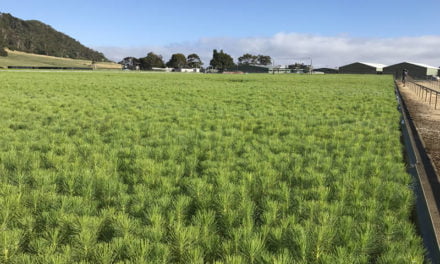For those who’ve had to dip into their super contributions, now’s the time to plan to rebuild, says industry super fund First Super.
The coronavirus pandemic hasn’t left much untouched – including the super balances of millions of Australians. For those who withdrew super under the Government’s early release scheme who may be feeling the pinch when it comes to future retirement savings, they’re not alone.
“There are a number of reasons super balances may have gone down or simply not grown as much over the last few months,” says First Super CEO Bill Watson.
“Along with members accessing super early, unstable markets have led to lower or negative returns and, unfortunately, many Australians have had their hours reduced or their work stopped altogether, which of course reduces the super guarantee (SG) amount you’d normally receive from your employer.”
While all this paints a somewhat bleak picture, Watson insists there is plenty of reason to think – and plan – positively for the future. “Super is a long-term investment, and it’s never been more important to keep that front of mind.”
He explains, “Even if you’re not back on your feet for a while, most members will have years to top-up accounts that have missed out on SG contributions or had super withdrawn early.”
Super is designed to be flexible
Nobody could have predicted the events of 2020 without a crystal ball. And superannuation experts are already predicting the need for members to add extra to their super.
“Outside of a pandemic, there are still reasons why your super balance may temporarily stop growing. For example, taking a career break, or being on parental leave when it’s not compulsory for employers to pay super. The system allows you to make up for lost time in those situations,” adds Watson.
Super members have a range of contribution options at their disposal. And recent changes have given older Australians more opportunity to boost their super, with modifications to the work test allowing members to make extra contributions for longer. And for those aged over 67 and selling their home, there’s even an option to tip some of those proceeds into super as a ‘downsizer’ contribution (up to $300,000 for individuals and $600,000 for couples).
Ways to contribute extra to super
Getting down to the detail, there are two main ways to contribute extra to super – concessional (before-tax) contributions and non-concessional (after-tax) contributions – with various tax benefits kicking in depending on age and income. The following is a brief overview.
- Concessional (before-tax) contributions
Concessional contributions include employer SG and any other before-tax contributions, such as salary sacrifice (where employers contribute extra super from an employee’s salary), plus any after-tax contributions claimed as a tax deduction. Members pay 15% tax on these types of contributions, which are generally tax effective on incomes of over $37,000 per year, since anything below that usually won’t attract a tax benefit.
Total concessional contributions can’t go beyond the $25,000 cap, but the introduction of the ‘carry-forward’ rule means any unused cap from the financial year ending 2018 onwards can be rolled into the next 5 financial years. (To be eligible, a member’s total superannuation balance must be below $500,000 as at 30 June each financial year.)
As an example, a member with a super balance under $500,000, and total before-tax contributions of $20,000 in the 2019/20 financial year (out of the maximum $25,000), could contribute $30,000 in total concessional contributions during 2020/21 ($25,000 + $5,000 carried forward).
- Non-concessional (after-tax) contributions
Here there is a choice of:
- Voluntary contributions from after-tax income or savings. Income tax has already been paid, so there’s no 15% contribution tax – the only way to attract extra tax on this contribution is by going over the cap (more below).
- Government co-contributions, a scheme designed to give lower income earners a helping hand to build their super. By making an after-tax contribution of any size, members will trigger the government to throw in a little extra too (up to $500, depending on contribution amount and eligibility).
- Spouse contributions and contribution splitting. Couples can top up each other’s super to make up for any shortfall, such as for time off raising children or being out of work. The contributing spouse can claim a tax offset for spouse contributions (up to $540, depending on eligibility), and couples may use moving super between accounts under contribution splitting for tax reasons.
The contribution limit (or cap) for non-concessional contributions is a generous $100,000 per financial year, or $300,000 in a rolling 3-year period under the ‘bring-forward’ rule. Contributions can be drip-fed or paid into super as a lump sum.
Every little bit helps
For those who have taken super early, or had their income affected by the pandemic, contributing extra any time soon may seem like wishful thinking. Watson says super funds understand this reality, and at First Super they’re here to help when members are ready.
“It’s a challenging time right now, and if our members have taken money out of super and it’s helped them stay afloat, we can only be glad about that. But when things do turn around in the future, we’d encourage members to take steps to rebuild their super.”
While the contribution options can seem overwhelming, and many members express a feeling of “I can’t afford much, so what’s the point?”, Watson stresses the significant difference even small contributions can make.
“Think of it this way. If you’re 50 and it takes you 10 years to add $5000 extra to super, you may not even use that money until you’re 80 if you’re living off what you’ve already saved and the Age Pension. So, in that instance, you’re giving that $5000 a 20-year opportunity to grow.”
Help is available
Watson encourages members to make the most of the resources their funds have to offer. Many super funds offer access to general financial advice, as well as personal financial planning at an additional cost.
Watson says, “As an industry super fund our focus is squarely on our members, and we’ll do everything we can to empower members to rebuild their super so they can enjoy a dignified retirement.”
If you are a First Super member and you want to discuss your super, you can contact its Member Services Team on 1300 360 988, or book a callback with a financial advisor for personal advice around contribution strategies at www.firstsuper.com.au/advice/
Disclaimer
This article was provided by First Super Pty Ltd (ABN 42 053 498 472, AFSL 223988), as Trustee of First Super (ABN 56 286 625 181). The content may contain general advice which has been prepared without taking into account your objectives, financial situation or needs. You should consult your own fund, or, if you are a First Super member, the Product Disclosure Statement (PDS) www.firstsuper.com.au/pds before making any investment decision.











